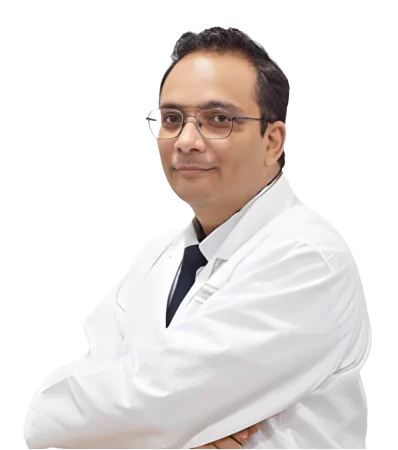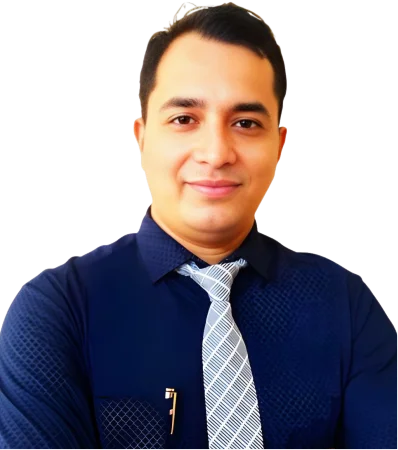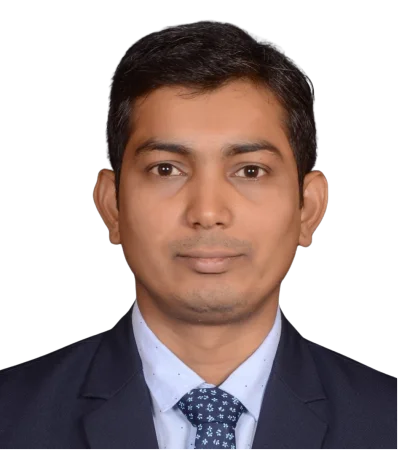Head and Neck Cancer Surgery
Advanced Solutions for Head and Neck Cancer Treatment
Surgery for head and neck cancer is an essential part of dealing with various forms of cancer that impact the neck and head region which includes the throat, mouth, the larynx, and the nasal cavities. Cancers that affect the head and neck can seriously impact crucial functions like swallowing, speaking, and breathing. The Chirayu Super Speciality Hospital. We offer cutting-edge surgical treatments specific to each patient’s individual medical condition. Our highly skilled team of oncologists and surgeons is dedicated to providing accurate and efficient medical care with a focus on maximising the effectiveness of treatments and preserving the the quality of life.

What is Head and Neck Cancer Surgery?
Surgery for neck and head cancer includes the elimination of tumors that are cancerous as well as damaged tissues of the neck and head region. The procedure may involve procedures including total or partial laryngectomy or pharyngectomy as well as oral cavity resection, as well as neck dissection. Every procedure is designed to target specific types of cancer and sites, while also aiming to keep the appearance and function of the area as much as is possible. The decision to pursue a surgical approach is based on factors like the location of the cancer, its size and stage, as well as the overall health of the patient. The main aim is to eliminate cancer while maintaining vital functions and minimizing the effect on the patient’s everyday life.
Who Performs Your Surgery?
The Chirayu Super Specialty Hospital is a world-class facility. Head and neck cancer surgery are carried out by a team of highly skilled surgeons, who have specialized training for treating head cancers and neck. The surgeons at Chirayu Super Specialty Hospital are aided by a multidisciplinary group, which includes pathologists, radiologists and reconstructive surgeons. They are able to offer comprehensive medical care. The surgical team uses the most advanced techniques and technology to ensure the accuracy of diagnosis and effective treatment. This approach to collaboration ensures every patient receives individualized treatment that is designed to yield the most optimal results.
Types of Head and Neck Cancer Surgery
- Partial Laryngectomy : This procedure involves the removal of a portion of the larynx (voice box) and is typically performed for cancers localized to one part of the larynx. The aim is to preserve as much voice function as possible while removing the cancerous tissue.
- Total Laryngectomy : In cases of advanced laryngeal cancer, a total laryngectomy may be necessary, which involves the complete removal of the larynx. This procedure often requires the creation of a permanent stoma (opening) for breathing.
- Pharyngectomy : This surgery involves the removal of part or all of the pharynx (throat). Reconstruction may be necessary to restore the ability to swallow and maintain a normal quality of life.
- Oral Cavity Resection : This procedure involves removing cancerous tissues from the mouth or oral cavity. Depending on the extent of the resection, reconstructive surgery may be performed to restore oral function and appearance.
- Neck Dissection : A neck dissection involves the removal of lymph nodes and surrounding tissues from the neck to address the spread of cancer. This procedure may be performed in conjunction with other surgeries to ensure comprehensive cancer treatment.
Symptoms Indicating the Need for Surgery
The signs that suggest the need for neck and head cancer surgery are persistent sores mouth ulcers or throat sores that don’t heal eating or swallowing with or without pain changes in voice like hoarseness, or loss of voice, lumps or swelling in the mouth or neck area or mouth area, as well as an unidentified loss of weight or persistent ears pain. These signs warrant an extensive examination to determine the most appropriate treatment plan.
Diagnosis for Head and Neck Cancer Surgery
The process of diagnosing head and neck cancer starts by taking a complete medical history and physical exam. Diagnostic tests, such as images studies (CT scans MRIs) and endoscopy and biopsy are vital to determine the type, presence and severity of cancer. These tests can help determine the best method of surgery and aid in planning treatment. An accurate diagnosis is vital to formulating a successful treatment plan and achieving the best results.
Treatment Process
The treatment process includes an extensive consultation with the doctor in order to determine the cause, options for treatment and the best surgical strategy. The neck and head cancer surgery is carried out under general anesthesia. It is the procedure specifically specific to the patient’s health and requirements. Post-operative treatment includes reducing discomfort, evaluating for any complications, and offering help for the recovery. Other treatments, like chemotherapy or radiation therapy could be suggested depending on the characteristics of the cancer and the stage. A customized treatment plan will ensure that every patient receives most efficient and appropriate treatment.
Care and Recovery After Surgery
The recovery process following neck and head cancer surgery requires focus on a variety of factors. It is recommended that patients adhere to the instructions for post-operative care, which might include taking care of pain, adhering diet changes, and participating in rehabilitation to improve swallowing and speech. A regular follow-up visit is crucial to track healing, taking care of any problems, and revising treatments as necessary. The majority of patients see improvement and then return to regular activities gradually, with constant assistance from our staff to ensure a speedy recovery and the highest level of living.
Advantages of Choosing Our Surgery Services
Expert Surgical Team
Our highly experienced oncologic surgeons specialize in head and neck cancer surgery, employing advanced techniques to deliver precise and effective treatment.
Personalized Care
Each patient receives a customized treatment plan tailored to their specific condition, ensuring the most appropriate and effective surgical approach for their needs.
Supportive Rehabilitation
We provide extensive support for rehabilitation, including speech and swallowing therapy, to help patients regain function and improve their quality of life after surgery.
What Our Patients Say
Read about our patients positive experiences and how Chirayu Super Speciality Hospital has positively impacted their health and well-being.


I highly recommend Chirayu for head and neck cancer surgery. The team skill, care, and support were exceptional throughout my treatment and recovery.


My experience with head and neck cancer surgery at Chirayu was transformative. The team’s expertise and support made a huge difference in my health and recovery.


Chirayu provided life-changing treatment for my head and neck cancer. The surgery was successful, and the support was outstanding throughout.


The head and neck cancer surgery at Chirayu was exceptional. The team’s care and expertise made a significant difference in my recovery.
Meet Our Medical Specialists
Our specialized team offers expert care for head and neck cancer, utilizing advanced surgical techniques to deliver effective treatment and support.
Frequently Asked Questions
Here, we provide answers to some of the most commonly asked questions to help you better understand about our surgery services. If you have any additional questions, please do not hesitate to contact us.
Head and neck cancer surgery involves removing cancerous tumors and affected tissues from the head and neck region to treat various cancers.
Candidates include individuals diagnosed with head and neck cancers that require surgical intervention for effective treatment and management.
The duration of the surgery varies depending on the complexity of the procedure and the extent of the cancer, typically ranging from 2 to 6 hours.
Risks include infection, bleeding, changes in speech or swallowing, and potential impact on surrounding structures. Our team takes measures to minimize these risks and ensure a successful outcome.
Recovery includes managing pain, following post-operative care instructions, and undergoing rehabilitation for speech and swallowing if needed. Follow-up visits are crucial for monitoring progress.



